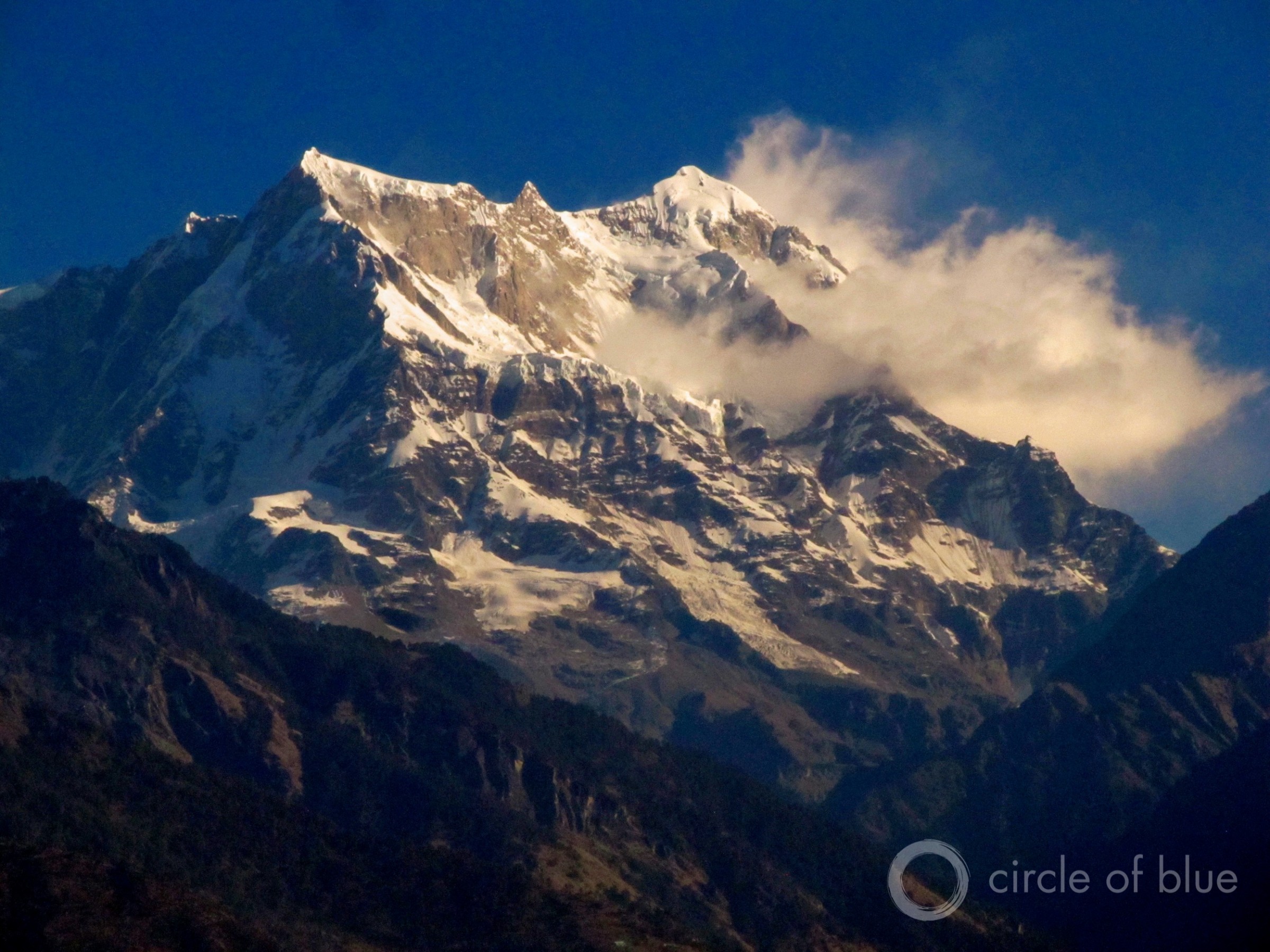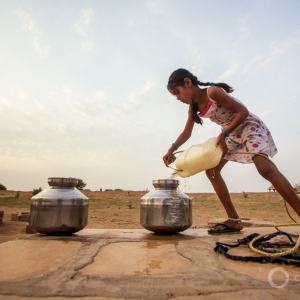The Stream, January 11, 2023: Proposed Hydropower Project Threatens Sacred Yakama Nation Food-Gathering Lands

The Himalayas, known as the water tower of Asia, rise over the northern Indian state of Uttarakhand. Photo © Keith Schneider/Circle of Blue
YOUR GLOBAL RUNDOWN
- Hundreds have been displaced due to historic flooding in western Australia.
- A new, first-of-its-kind study suggests that global warming this century will cause more glacial melting and sea level rise than previously thought.
- Waterways in some of Alaska’s most protected wilderness areas are acidic and turning orange, confusing locals and researchers.
- In south-central Washington state, a pumped-water storage project threatens a First Foods gathering area, a sacred place for the Yakama Nation.
Pollution and climate change in India’s Ladakh region are jeopardizing local shepherds’ long-standing, sustainable ways of life.
“Climate change is a global mismanagement, while pollution is a local mismanagement. We are witnessing devastating effects of the mix in Ladakh.” — Sonam Wangchuk, engineer and founding director of the Himalayan Institute of Alternative Ladakh.
The high-altitude Ladakh region — administered by India, located between Pakistan and China — is remote and rural, home to nomadic shepherds and their flocks of sheep, goats, and yaks. For thousands of years Ladakh’s climate was reliably cold, adjacent to the Himalayan mountains and thousands of glaciers.
But rising temperatures, Al Jazeera reports, have caused great change to the community. Villagers are permanently leaving for low-paying jobs in urban centers. Invasive mosquitos are now regular residents amidst Ladakh’s warmer air and melting glaciers. The disappearance of ice has caused landslides and flooding in the short-term, and threatens the region’s long-term water security.
Al Jazeera also reports that territorial tension between India and China has led to “tens of thousands of additional troops” being deployed to the region, increasing pollution in Ladakh.
Herders in the region are resisting these changes, turning to alternative irrigation methods and clean energy sources. Nonetheless, set against these large-scale phenomena, the long-term survival of their way of life remains in jeopardy.
— Christian Thorsberg, Interim Stream Editor
Recent WaterNews from Circle of Blue
- 20 Years of Severe Drought Impede Huge Developments in Southwest — Uncertain path forward for largest development ever proposed in Arizona.
- Giant Catch in the Mekong Reveals Mysteries of Biodiversity Hot Spot — Fish tracking project builds the case for international conservation cooperation.
The Lead
Since time immemorial, the Yakama Nation has grown medicinal and traditional First Foods on their sacred land, called Pushpum (or Put-a-lish, by the Rock Creek Band of the Yakama Nation), in what is today south-central Washington. The yearly act of harvesting these crops, in addition to Pushpum hosting sites of ceremonial, historical, and archaeological significance, has made it a place “of extraordinary importance” to the Yakama people.
But a proposed hydropower development, the $2 billion Goldendale Energy Storage Project, will have “significant and unavoidable adverse impacts” on the land’s cultural meaning, native plants, and wildlife, the Seattle Times reports.
According to the Washington Department of Ecology, 79 percent of the project area is within “high risk or very high risk” of encountering Yakama archaeological sites. Close to 40 native plant species — including those that are endangered or threatened — grow within the project’s 680-acre site. And per the Seattle Times, the tribe has observed deer and eagles migrate away from nearby, existing wind turbines. Members fear that “history will repeat itself.”
The pumped-water storage facility, proposed by Rye Development, would use an upper- and lower- reservoir system with a 1,200 megawatt capacity along the Columbia River. It is projected to use 2.93 million gallons of river water to fill the reservoirs, and then offset evaporation and leakage with 1.27 million additional gallons per year, the Seattle Times reports.
“Here we are again. We’re back in the situation where energy demand is needed and we’ve been feeling these impacts. Throughout Washington state in Indian Country, tribes are being put in this position where they’re feeling the burden of all these projects,” Jeremy Takala, a Yakama Nation councilmember, told the newspaper.
Construction would begin in 2025, and last for five years.
This Week’s Top Water Stories, Told In Numbers
233
Number of people evacuated, via military helicopter, from northwestern Australia after “once-in-a-century” floods ravaged the Kimberely region, Reuters and The Independent report. The floods are due to the heavy rains brought by severe weather system Ellie, formerly a tropical cyclone. It is one of many storms to hit Australia during the latest multi-year La Niña. According to Reuters, Kimberely’s Fitzroy River set a record height of 52 feet.
68
Percent of the world’s glaciers that will disappear by 2100 if global temperature rise continues at its current pace, according to a new study. Published in the journal Science, it is the most comprehensive look at glacial melt yet. The Associated Press reports that this level of melting would cause 4.5 inches of sea level rise, placing 10 million people from around the world under the high tide line.
On the Radar
Researchers and tribes in Alaska have observed local waterways turn rust-orange and acidic, High Country News reports. Many of the rivers run through national wildlife refuges and national parks. The change is making the water undrinkable, and may impact the river’s ecology. The cause of the change is under study, though one prevailing hypothesis is that melting permafrost has released once-frozen minerals and salts, which interact with the river to produce a new water chemistry.
More Water News
Green Hydrogen: A new project in Texas, boosted by Inflation Reduction Act subsidies, will become “the country’s first large-scale producer of clean hydrogen,” a vehicle fuel made from water in a potentially emissions-free process, InsideClimate News reports.
‘Climate Terrorists’: The term has been chosen as Germany’s 2022 “non-word” of the year, an annual designation made by linguists in the country to highlight “inhumane or inappropriate terms that violate the principle of human dignity,” DW reports. Jurors said they selected “climate terrorists” because the language criminalized and defamed non-violent activists, and removed focus from climate solutions.
Christian Thorsberg is an environmental writer from Chicago. He is passionate about climate and cultural phenomena that often appear slow or invisible, and he examines these themes in his journalism, poetry, and fiction.







Leave a Reply
Want to join the discussion?Feel free to contribute!